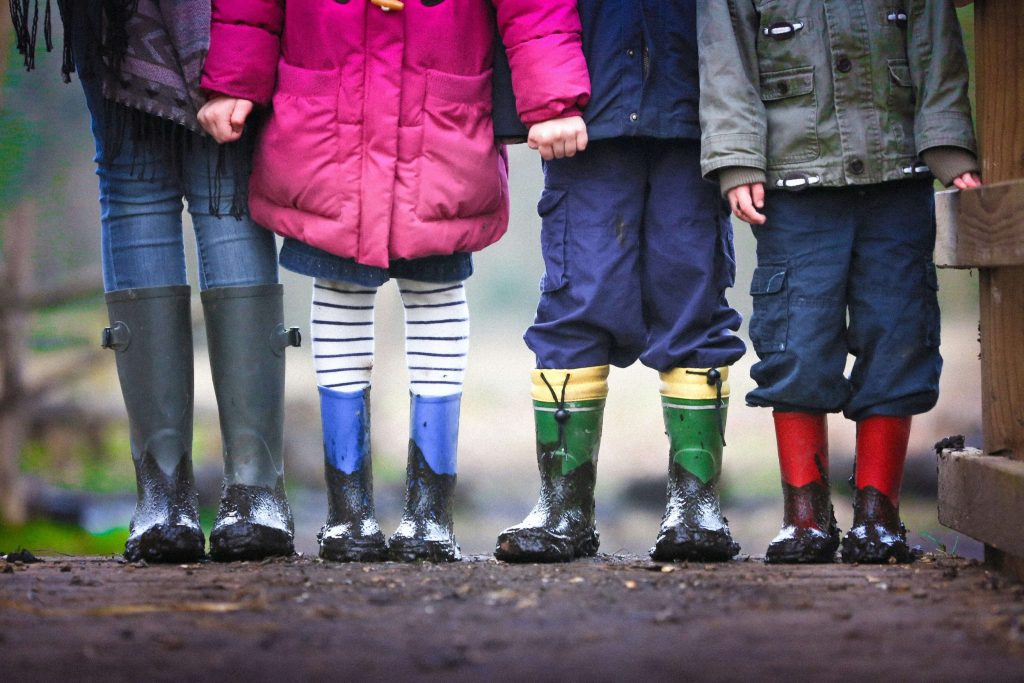
In the colorful world of play, sensory experiences hold a special place – they’re the equivalent of a chef’s tasting menu for a child’s developing brain. Through simple activities involving touch, smell, taste, movement, balance, sight, and hearing, sensory play lays down the foundation for a rich tapestry of lifelong learning. Parents, educators, and child development experts are recognizing that it is far more than just fun and messy—it’s a critical part of early childhood development. In this blog, we’ll explore the myriad ways in which sensory play can benefit young learners and child development.
What Is It?
Sensory play includes any activity that stimulates a young child’s senses and encourages them to explore and investigate. This type of play encourages children to use the ‘scientific method’ of observation, hypothesis, experiment, and conclusion without even realizing it. Whether it’s playing with squishy slime, walking barefoot on grass, or listening to different sounds in nature, it lays a foundation for complex learning tasks.
The Key Benefits of Sensory Play
Cognitive Growth
Each sensory experience is like a workout session for a child’s brain, causing synapses to fire and new connections to form. It’s through these experiences that children learn important skills like identifying objects and understanding the properties of different materials—critical abilities for later academic success.
Motor Skills Development
It isn’t just about squishing and squashing. It involves actions like pouring, scooping, and picking up small objects that hone fine motor skills. Activities that have children jump, balance, or climb offer a gymnasium for gross motor development.
Language Enrichment
Ever noticed how a new experience can leave you at a loss for words? For children, those words accumulate quickly as they describe their sensory play. ‘Sticky’, ‘smooth’, ‘bumpy’, ‘cold’ – each texture, each experience builds their vocabulary and conversational skills.
Social Skills
When kids share playdough or work together to build a sensory bin, they’re learning valuable lessons in cooperation. Turn-taking, teamwork, and problem-solving come into play, preparing them for the broader social milieu of life.
Problem-solving prowess
It often lacks a predefined outcome, giving children the reins to their discovery. They learn to make decisions and face the consequences, thus refining their problem-solving skills. The adaptability and creativeness in finding their solutions are attributes that later translate to real-world success.
Emotional Equilibrium
Sensory play can be particularly effective for children who need help with emotional regulation. The tactile experiences serve as a grounding technique that can soothe a distressed child, helping them learn to cope with their emotions in a healthy way.
Creativity and Imagination
With sensory play, materials become whatever children imagine them to be. A lump of clay can become a mountain, and water can turn into a potion. This imaginative play stokes creativity, a critical skill for thinking outside the box.
Ideas for Sensory Play
Ready to dive into sensory play? Here are a few simple ideas to get started:
- DIY Sensory Bins: Fill a container with rice, beans, or water beads and hide small toys inside for a delightful search-and-find game.
- Nature’s Touch: Collect leaves, rocks, pinecones, and other natural materials to create a tactile exploration box.
- Play Dough Creations: Homemade or store-bought, play dough is excellent for molding and shaping—and talking about textures.
- Interactive Storytelling: Read a story and provide materials related to the tale for hands-on interaction while reading.
Remember, the beauty of sensory play lies in its simplicity and the fact that experiences can be as varied as the individuals engaged in them.
Conclusion
Sensory play stands as a cornerstone of early childhood development, finely tuning young learners’ abilities for the challenges ahead. It transcends cultural, linguistic, and socioeconomic boundaries, offering an inclusive and diverse approach to education. Crucially, it’s not only educational but also delightful, fun, and wonderfully messy—a reflection of childhood itself. Encouraging sensory play daily fosters profound learning experiences in children. Through innovation and experimentation, we can cultivate a love for exploration and discovery. Troomi phones and watches complement this journey by providing all the essential features of a cell phone without unnecessary distractions. By offering a safe and reliable means of communication, Troomi empowers kids and families to fully engage in sensory play experiences while staying connected and protected. Let’s unlock the magical world of sensory play and witness the remarkable growth and development of our young ones.
Interested in learning more? Click here
